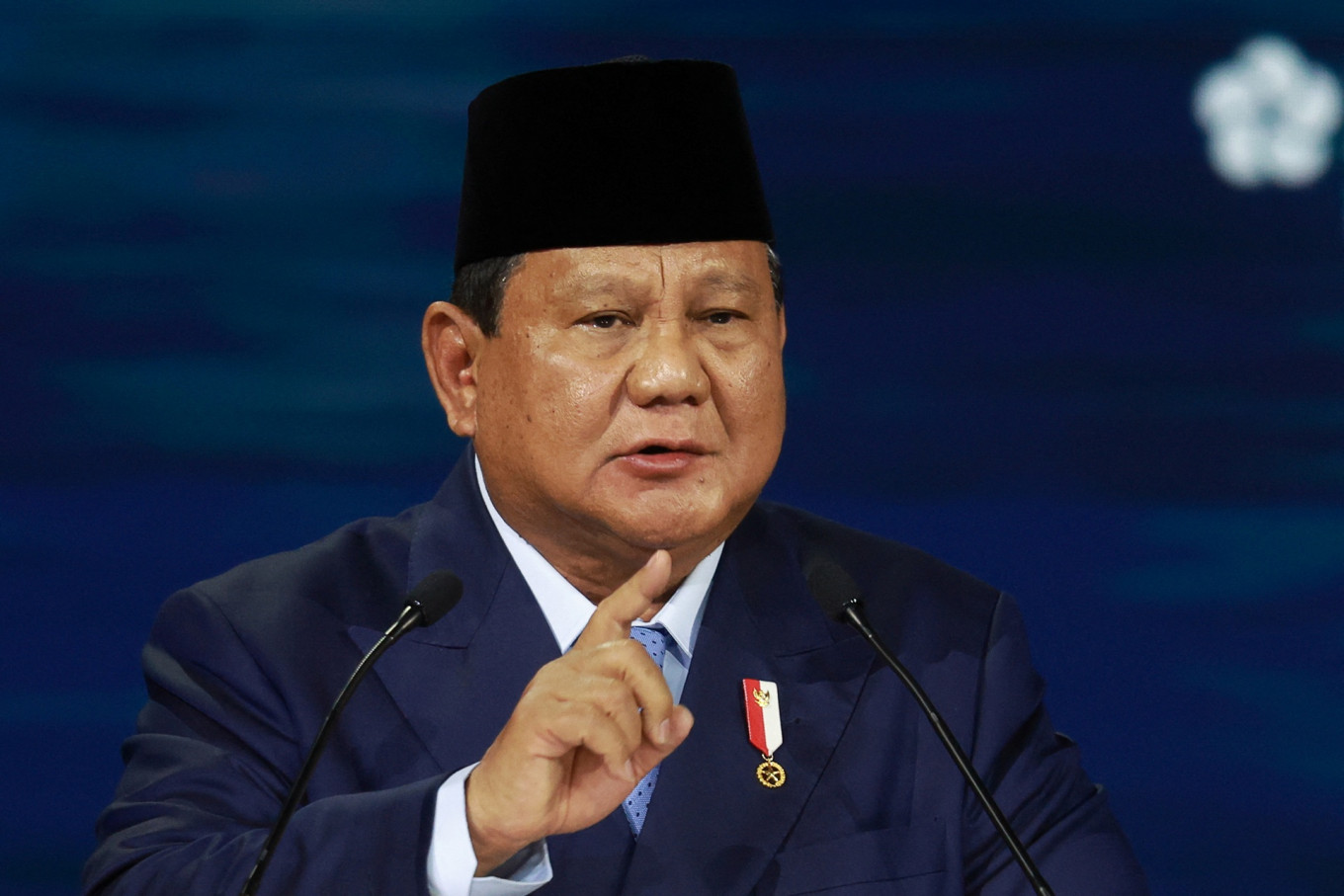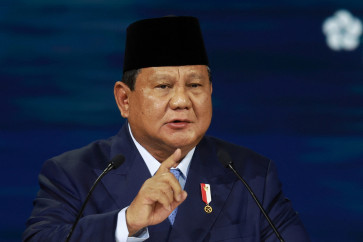Popular Reads
Top Results
Can't find what you're looking for?
View all search resultsPopular Reads
Top Results
Can't find what you're looking for?
View all search resultsIndonesia has a history of illiberal democracy
History shows that authoritarianism is one of the country's standard responses to economic upheaval.
Change text size
Gift Premium Articles
to Anyone
C
oncerns are growing, particularly among civil society organizations, that President Prabowo Subianto is steering Indonesia toward authoritarianism. As a retired Army general, Prabowo views authoritarian rule as the most viable option for implementing his five-year development program.
However, history shows that Prabowo is not the first leader to embrace illiberal democracy.
Since Indonesia's proclamation of independence in 1945, its political culture has been marked by continuous change aimed at resolving crises. Therefore, it's an oversimplification to argue that Indonesian politics is inherently authoritarian or democratic. Instead, the country's political history reveals that governments that fail to deliver socioeconomic prosperity often lead to systemic changes in governance.
Economic crises in the 1940s, 1960s and 1990s each triggered a shift between authoritarianism and democracy. These governmental changes were facilitated by political elites, largely motivated by self-interests. Thus, while neither democracy nor authoritarianism can be called inherent to Indonesian politics, patronage is a consistent theme, creating stable political environments by appeasing powerful elites.
Democratic systems, defined by the principle of popular sovereignty, are meant to translate the will of the people into practical governance, primarily by meeting social and economic demands. Rather than aligning with the normative ideal of electoral or liberal democracy, which is characterized by regular, free and fair elections, the practical and immediate meaning of democracy in Indonesia is that the elected government can fulfill the people's social and economic needs. The separation of powers and mechanisms of checks and balances are not always considered essential, a view clearly adopted by both the people and the elected government.
Authoritarian governments, while not entirely opposed to this practical understanding of democracy, theoretically make decisions regardless of public opinion or the advice of public representatives.
Therefore, authoritarian regimes are defined by the fact that elections do not determine the decision-making process. In this sense, while authoritarian leaders may claim to act in the general population's interest, their authority does not stem from regular, free and fair elections. This forms the basis for illiberalism, if not outright authoritarianism, where people's sovereignty is instrumentally translated into economic and social satisfaction.



















